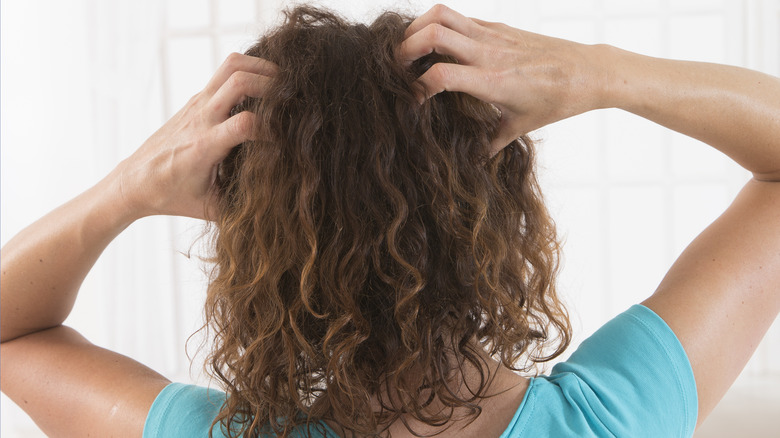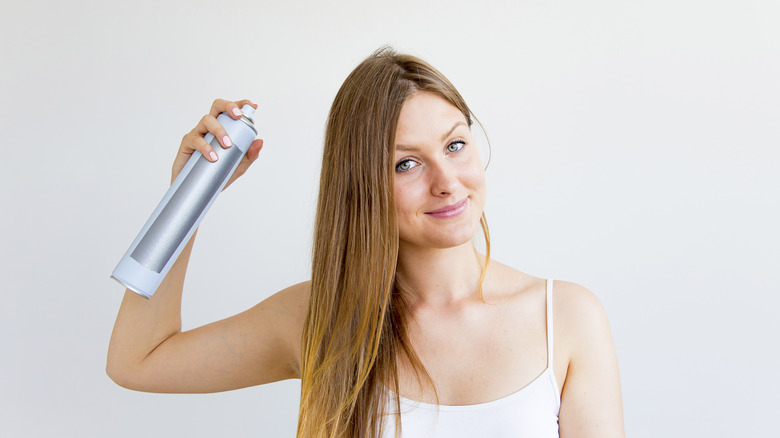The Reason You Should Stop Using Dry Shampoo
Dry shampoo is a godsend for busy people, particularly those of us who don't have the inclination (nor need) to wash our hair every day. It's a quick and easy way to freshen up your 'do and give it some body without hopping in the shower. Understandably, dry shampoo is big business right now.
However, as more and more people utilize the time-saving product worldwide, concerns have grown about the potential risks associated with frequent dry shampoo use. Dry shampoo may be convenient but it can also potentially lead to hair breakage, clogged follicles, or even hair loss in the long term.
What are the biggest risks associated with dry shampoo?
A damning Healthline report argues that because dry shampoo doesn't actually clean your hair, but instead absorbs oils, it can dry out your scalp considerably. Likewise, dry shampoo is an aerosol-based product, most often containing alcohols, which can dry your hair out. When it's dry, your hair is more prone to breakage, as individual fibers can crack or snag on each other when you brush or style it.
Using dry shampoo too frequently, or leaving it in your hair for too long without washing it out, leads to a buildup of product on your scalp, which makes it itchy and can even lead to folliculitis, a bacterial or fungal infection in the hair follicles. Although dry shampoo hasn't been found to cause dandruff, it does make oils cling to your scalp which, as a study by the Mayo Clinic found, can lead to the flaky condition.
There's nothing concrete to suggest dry shampoo causes hair loss, but poor scalp health can and, if excessive usage leads to damaged follicles or even a bacterial infection, new hair growing from the follicle is more likely to break or fall out.
Is dry shampoo safe to use?
When it comes down to it, using dry shampoo a couple of times a week is safe enough, but if you're reaching for it more frequently, then you're also running the risk of damaging your hair in the long term. Doctors recommend using it no more often than two days in a row, and make sure you hold the can about 6 inches from your head and spray only the hair and not onto your scalp directly.
Don't cover your hair in dry shampoo, either, as only the oiliest areas require attention. Glamour magazine further emphasizes dry shampoo's underrated ability to create volume, suggesting we consider it more as a method of building body rather than as a shampoo-like cleanser, which should help prevent overuse.


